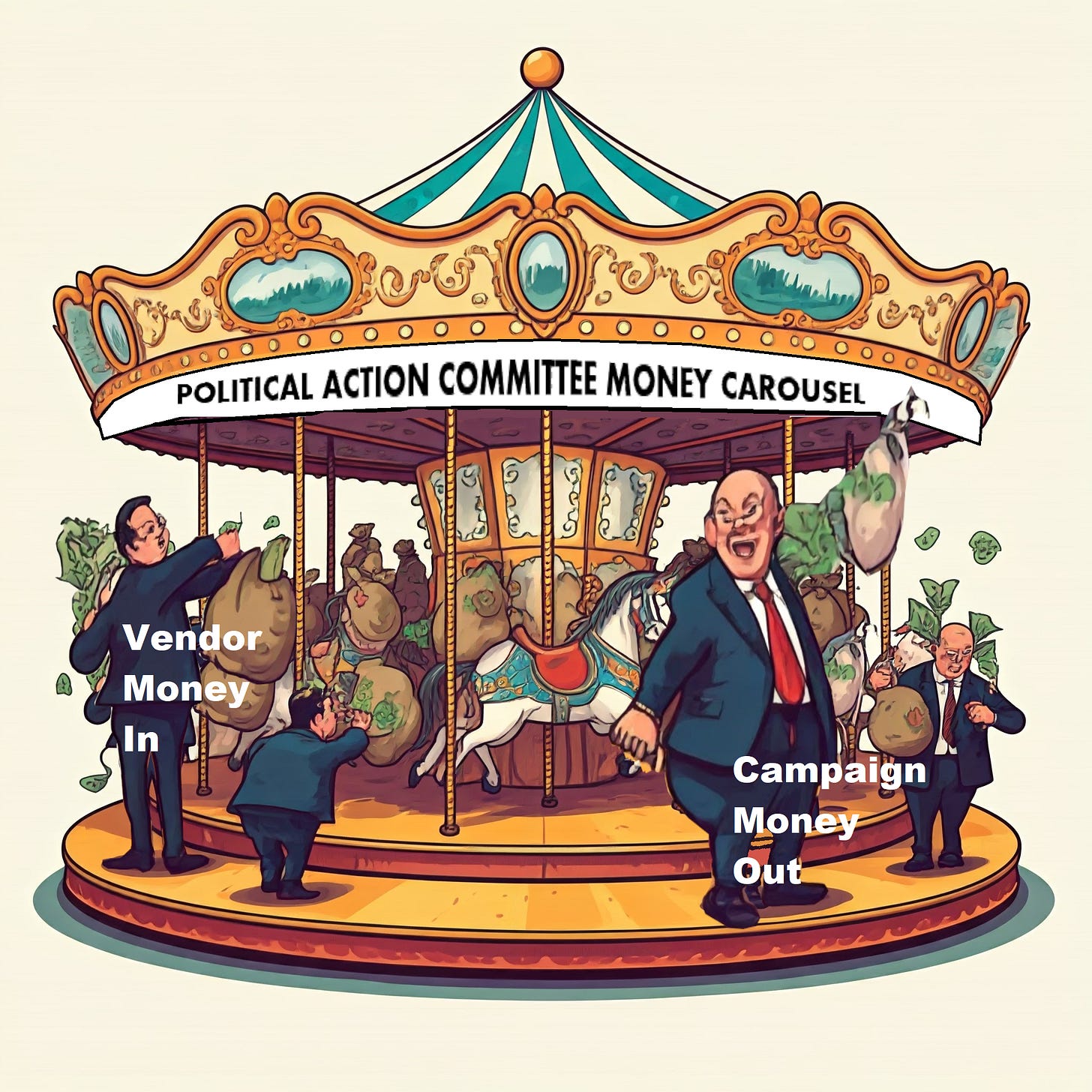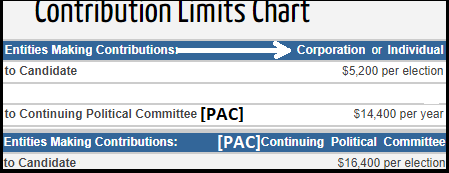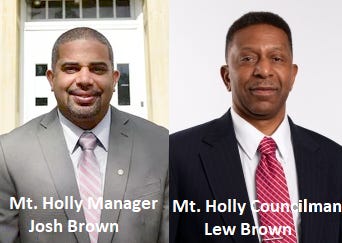EDITORIAL: IS THAT LEGAL?
EXPLORING THE SOMETIMES SURPRISING REALITIES OF OUR POLITICAL SYSTEM
When you think of New Jersey, do you think of our beautiful beaches? Or perhaps our wonderful melting pot cuisines and our proximity to big city culture? Some think of our famous “AT-EE-TUDE” that was perfectly captured in a Jersey State Slogan competition with "New Jersey: You Got a Problem With That?".
For the purposes of this article, I would draw your attention to another entry that didn’t make the final cut in the slogan competition: "Most of Our Elected Officials Have Not Been Indicted." That’s because we have an unfortunate history of corruption with the most recent example being Bob Menendez and his conviction for bribery in July with its cartoonish details of gold bars stashed in his home.
YEP, ITS LEGAL.
Many people express surprise to hear that monetary transactions that seem rife with conflicts of interest are completely legal. Yes, its legal for companies [“vendors” in municipal government parlance] seeking government contracts to give impressive amounts of campaign money to politicians who will later give them contracts.
And there are multiple ways for a vendor to give campaign donations. They can give directly to a politician’s campaign, demonstrating a public intention to support the candidate. Or a contribution can be less intentional by passing it through a Political Action Committee [PAC].
WHAT’S THE DIFFERENCE?
In the case of PAC contributions, the intended recipient is unknown. The vendor can rightly say it’s the PAC that gives the money to a candidate, or spreads it between multiple candidates or perhaps to charities.
Another difference is that contribution limits both to and from PACs are significantly higher. So, if you are an individual or a corporation that really wants to help a candidate win, you can bump up your contribution nearly 3Xs higher by giving to a PAC. And that PAC can bump the contribution even higher. These contributions are hiding in plain sight at the web site of the New Jersey Election Law Enforcement Commission [ELEC] which requires that the money be reported.
https://www.elec.nj.gov/forcandidates/elect_limits.htm
The Mount Holly Reporter checked ELEC’s contribution reports and found two PACs at work in Mount Holly elections. One is called The Rancocas Valley Democrats [Headquartered at 223 High Street] and the other is called Burlington County Labor Voice, out of Columbus.
ELEC paperwork records that the Burlington County Labor Voice [BCLV] exists to “support candidates who value and support creation of local jobs” and to give to charity. In April of 2022, BCLV raised over $12,000 from two Mount Holly Township vendors. Then in May of 2022, just prior to the primary election, BCLV contributed $7,000 to the campaign of Kristin Savage, who was running for Town Council. This massive contribution is made in the context of a race where typical contribution are $50 or $100.
SO WHAT’S WRONG WITH THAT?
Consider that a study by Princeton University showed that “the preference of the average American appear to have only a miniscule, near-zero, statistically non-significant impact upon public policy”. So what did the study find had an influence? “Organized groups representing business interests”. [Google “Testing Theories of American Politics”]
On a practical level, the problem comes down to the cost of running for office. Its expensive and campaigns run on Money. Yes, in a very small place like Mount Holly, it is possible for a candidate to knock on most doors. And speaking with voters is the gold standard. But speaking with enough of them is a Herculean task and in reality, the vast majority of successful Mount Holly campaigns spend tens of thousands of dollars to get out a message. The polling, the glossy mailers, the lawn signs, the billboards and the digital campaigns that invade your google and facebook feeds. These all take lots of Money.
And you can safely bet that the candidate selected to receive big donor money are in general going to be sympathetic to certain business interests that align with the donor. And as the Princeton study said, organized groups representing business interests have outsized impact on public policy.
All that said, is New Jersey poised to get money out of politics? Doesn’t look like it.
YEP, THAT’S LEGAL TOO.
Another fact that is startling to some is the Father/Son relationship in Mount Holly’s government. I’ve heard residents say that such a key position of authority as Manager should not include the potential conflicts of interest posed by having a family member on Council who has close relationships with those who can hire/fire that relative. But yes, in fact, there is no prohibition against it.
Council member Lew Brown, who was first elected in 2012, is seeking a fourth term on Mount Holly Town Council. His son Josh Brown has served as Township Manager since 2017. A 2017 article by the Burlington County Times stated that Mount Holly “officials said the municipality does not have an anti-nepotism ordinance” but its code of ethics forbids employees from using their position “to secure unwarranted privileges or advantages."
New Jersey’s Local Government Ethics Law [N.J.S.A. 40A:9-22.1 et seq.] requires local government officers to recuse themselves from matters that involve a direct or indirect financial or personal interest for themselves, a family member, or a business they have an interest in. This is to ensure their objectivity and independence of judgment.
However, some residents express objections to allowing a person to secure a political office that has hiring and firing power over a family member, despite the ethics recusal requirements. Does that opinion matter in the upcoming election? We will get a sense of that on November 5th.







